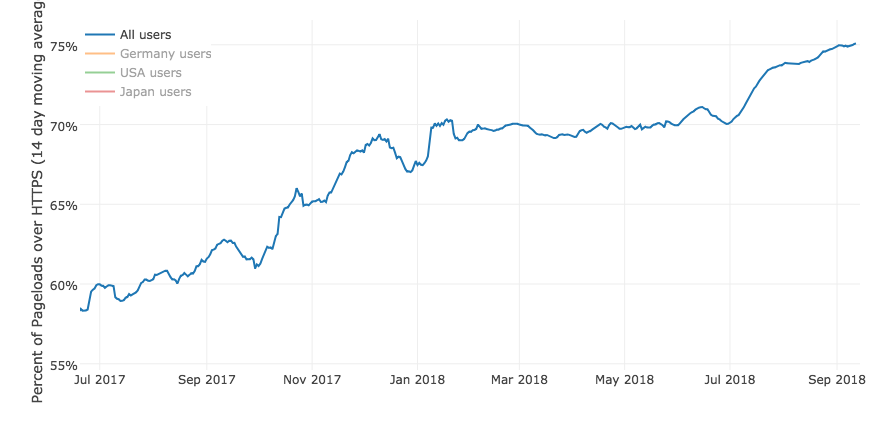Bon anniversaire, Let’s Encrypt!
The free-to-use nonprofit was founded in 2014 in part by the Electronic Frontier Foundation and is backed by Akamai, Google, Facebook, Mozilla and more. Three years ago Friday, it issued its first certificate.
Since then, the numbers have exploded. To date, more than 380 million certificates have been issued on 129 million unique domains. That also makes it the largest certificate issuer in the world, by far.
Now, 75 percent of all Firefox traffic is HTTPS, according to public Firefox data — in part thanks to Let’s Encrypt. That’s a massive increase from when it was founded, where only 38 percent of website page loads were served over an HTTPS encrypted connection.
“Change at that speed and scale is incredible,” a spokesperson told TechCrunch. “Let’s Encrypt isn’t solely responsible for this change, but we certainly catalyzed it.”

HTTPS is what keeps the pipes of the web secure. Every time your browser lights up in green or flashes a padlock, it’s a TLS certificate encrypting the connection between your computer and the website, ensuring nobody can intercept and steal your data or modify the website.
But for years, the certificate market was broken, expensive and difficult to navigate. In an effort to “encrypt the web,” the EFF and others banded together to bring free TLS certificates to the masses.
That means bloggers, single-page websites and startups alike can get an easy-to-install certificate for free — even news sites like TechCrunch rely on Let’s Encrypt for a secure connection. Security experts and encryption advocates Scott Helme and Troy Hunt last month found that more than half of the top million websites by traffic are on HTTPS.
And as it’s grown, the certificate issuer has become trusted by the major players — including Apple, Google, Microsoft, Oracle and more.
A fully encrypted web is still a ways off. But with close to a million Let’s Encrypt certificates issued each day, it looks more within reach than ever.